Virtue and vice
 To better understand virtue and vice and how to define good character, The Character Project at Wake Forest has granted nearly $1 million in research funding to theologians and philosophers from around the world.
To better understand virtue and vice and how to define good character, The Character Project at Wake Forest has granted nearly $1 million in research funding to theologians and philosophers from around the world.Categories: Research & Discovery, University Announcements

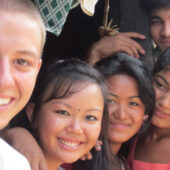 That Steve Folmar's research in Nepal has been funded by the National Science Foundation’s cultural anthropology program is reason to celebrate. For students, however, the best news is that the support brings additional opportunities to be a part of the project.
That Steve Folmar's research in Nepal has been funded by the National Science Foundation’s cultural anthropology program is reason to celebrate. For students, however, the best news is that the support brings additional opportunities to be a part of the project.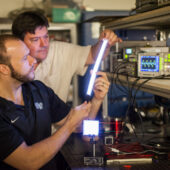 Say goodbye to that annoying buzz created by overhead fluorescent light bulbs in your office or residence hall. Wake Forest scientists have used nanotechnology to develop a flicker-free, shatterproof alternative for large-scale lighting.
Say goodbye to that annoying buzz created by overhead fluorescent light bulbs in your office or residence hall. Wake Forest scientists have used nanotechnology to develop a flicker-free, shatterproof alternative for large-scale lighting.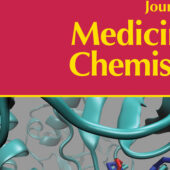 The work of an interdisciplinary team of Wake Forest researchers developing a novel drug for prostate cancer treatment is featured on the cover of the Nov. 26 issue of the Journal of Medicinal Chemistry.
The work of an interdisciplinary team of Wake Forest researchers developing a novel drug for prostate cancer treatment is featured on the cover of the Nov. 26 issue of the Journal of Medicinal Chemistry. Communication professor Alessandra Von Burg’s vision was born of the idea that everyone has stories to tell whether they are lifelong U.S. citizens or recent immigrants.
Communication professor Alessandra Von Burg’s vision was born of the idea that everyone has stories to tell whether they are lifelong U.S. citizens or recent immigrants. 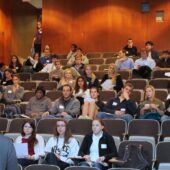 Students in Pat Lord's Bio 367 Virology class helped create a new program designed to develop students' critical thinking skills about bioethics outside the classroom. And it all started with dinner ... and a movie.
Students in Pat Lord's Bio 367 Virology class helped create a new program designed to develop students' critical thinking skills about bioethics outside the classroom. And it all started with dinner ... and a movie. Kory Riemensperger ('13) found a community when he joined Wake Radio as a first-year student. Now one of the largest and fastest-growing student organizations on campus, Wake Radio has given him experience he values as much as his academic achievements.
Kory Riemensperger ('13) found a community when he joined Wake Radio as a first-year student. Now one of the largest and fastest-growing student organizations on campus, Wake Radio has given him experience he values as much as his academic achievements. The new Interdisciplinary Performance and the Liberal Arts Center (IPLACe) will inspire new ideas and build new connections between the performing arts and other academic departments across the University.
The new Interdisciplinary Performance and the Liberal Arts Center (IPLACe) will inspire new ideas and build new connections between the performing arts and other academic departments across the University. If all the world were a stage, and all men and women were players, then Shakespeare’s “As You Like It” would be easier to understand. At least that’s what Wake Forest theatre professors say.
If all the world were a stage, and all men and women were players, then Shakespeare’s “As You Like It” would be easier to understand. At least that’s what Wake Forest theatre professors say.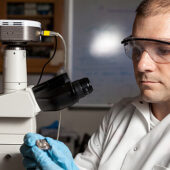 Wake Forest researchers received a $700,000 grant from the National Institutes of Health to bring to market a new drug-discovery tool using next-generation genetic sequencing. Someday, pharmaceutical companies will use their technology as a sort of Google search for new drugs, making diagnostics discovery significantly more efficient.
Wake Forest researchers received a $700,000 grant from the National Institutes of Health to bring to market a new drug-discovery tool using next-generation genetic sequencing. Someday, pharmaceutical companies will use their technology as a sort of Google search for new drugs, making diagnostics discovery significantly more efficient.